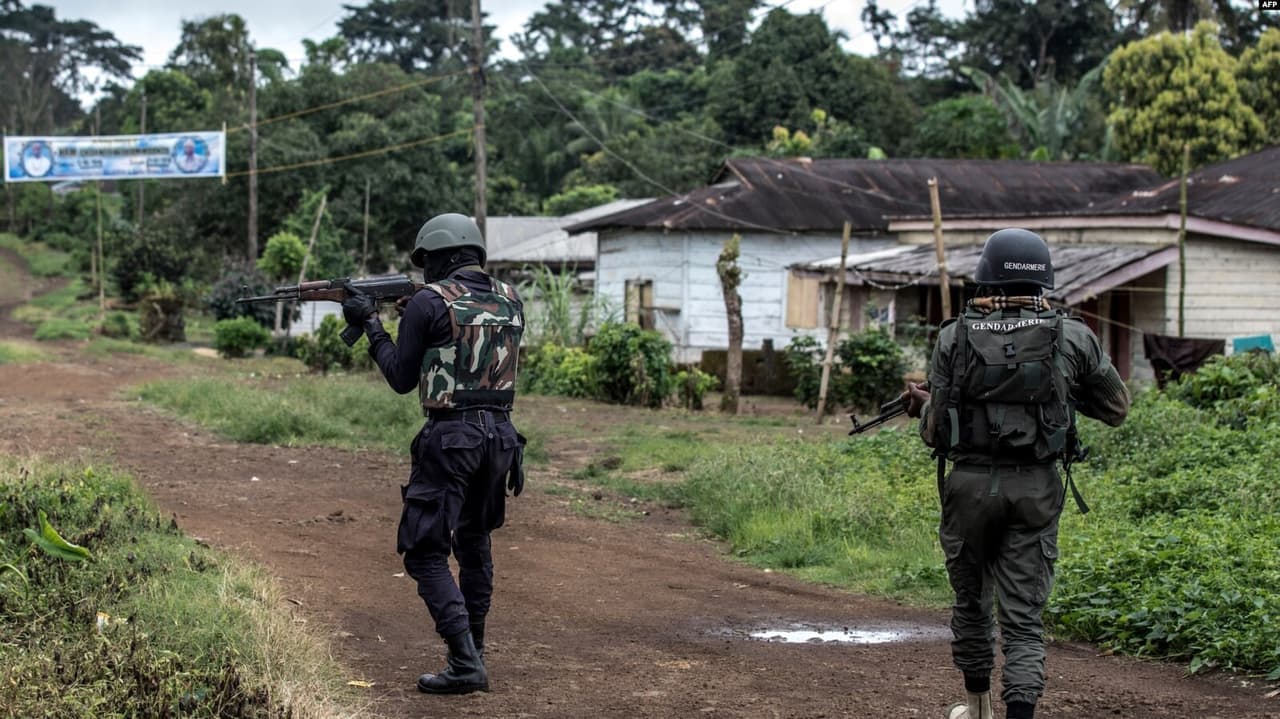BUEA, Cameroon – Catholic bishops in Cameroon and government officials have expressed optimism that the country could be witnessing a gradual return to peace, if the hosting of the 48th Bishops’ Conference by the Buea Diocese in the troubled South West region is taken as a yardstick.
Just a few years back, it would have been a near impossibility for such an event to take place in the capital of the South West region, where separatist violence had made life nearly impossible.
For nearly nine years now, separatists in the majority French-speaking Cameroon’s two English-speaking regions have been fighting to create a new nation to be called Ambazonia, but it now appears the fighting could be subsiding.
The Bishops’ Seminar that started January 6 is perceived by both the Church and the administration as a sign that there is a gradual return to normality.
“If you look at the situation when it started [in 2016] and where we are now, you will agree that progressively there have been changes,” said Bishop Michael Miabesue Bibi of the Diocese of Buea.
“Progressively, children are going to school. Progressively, those who left their villages and went out as internally displaced persons – some of them are going back to work on their farms and care for their crops,” he explained.
The Mayor of Buea, David Mafani Namange, echoed similar sentiments, telling the bishops the sheer fact that they could meet in Buea was evidence that the joint efforts at restoring peace to the two troubled English-speaking regions of Cameroon were paying off.
“It is my humble belief that God Almighty touched your hearts to meet in Buea at this point in time in order to prove to the world that Buea is not at war as some negative-minded individuals want to represent us in the social media,” the mayor said.
“We have regained normalcy because we are lovers of peace,” he said.
The Governor of the South West region, Bernard Okalia Bilai, added that the holding of the Bishops’ Seminar was “a consecration and recognition of the consistent efforts of the head of state and his government to ensure a return to peace and normalcy in this part of our country.”
He said the Catholic Church has no doubt been front and center in the effort towards peace, sometimes risking their lives in the process.
Both officials implored the bishops to continue praying for the cleansing of the land, and for total peace to return.
“We beg of you, your excellences, not only to pray to cleanse our land but equally for God almighty to touch the hearts of a few misguided youths who may still be derailed, to join the peace-loving people in our developmental drive,” the mayor said.
The President of the Episcopal Conference, Archbishop Andrew Nkea Fuanya of Bamenda, noted that the country as a whole was still hurting, not only from the separatist crisis in the two Anglophone regions or the Boko Haram incursions to the north, but also from the corruption and rot that have permeated almost every sector of the Cameroonian society.
The Bishops’ Seminar, he said, was taking place “in a context of doubt, discontent, and uncertainty for the future.”
“The causes of this doubt, this uncertainty, and this discontent are well known to all,” the archbishop said.
He recalled that President Paul Biya in his New Year address to the nation had identified those causes, including corruption, high taxes, the poor state of road infrastructure, the poor management of the railways, diseases, and insecurity has triggered “cohorts of displaced populations, villages destroyed, economic slowdowns, without forgetting the many losses in human lives, and this for more or less nine years.”
“We, the Bishops of Cameroon, are aware of the suffering of our citizens, and we call on all those who have any responsibility for the management of our country to place the well-being of the people of Cameroon above all selfish interests,” Nkea said.
“We ask this in the name of the evangelical mandate that we have received from Our Lord Jesus Christ. Indeed, the Church, in pursuit of its mission received from Christ, is committed to promoting man in all his dimensions, and the joy and hope, sadness and anguish of men of this time, of the poor above all, and of all those who suffer, are also the joy and hope, sadness and anguish of the disciples of Christ,” he continued.
The archbishop said the problems Cameroon faces today cannot however be tackled by anyone individually, but by all Cameroonians. He challenged them to roll up their sleeves and work for the development of the nation.
Only then can the nation live up to the promise of the hope that Christ brings, Nkea explained.
“In the face of these causes of doubt and uncertainty, Christ offers us the antidote, which is hope,” the archbishop said, echoing the theme of the Jubilee Year 2025.
“Christian hope does not deceive, because it is based on the certainty that nothing or no one will ever be able to separate us from the love of God. Thus, despite the difficult times we are going through, we must not lose sight of the fact that it is in the heart of the night, the darkest night, that God makes the light shine. It is in the heart of the night that the Lord was born in a world that was in despair, and it is also in the heart of the night that the liberation of humanity has become possible thanks to the resurrection of our Lord Jesus Christ,” he continued.
Nkea said that there is a real need in Cameroon “to live in this hope which does not deceive, a hope which is an open door to a better day for our country and for ourselves.”














